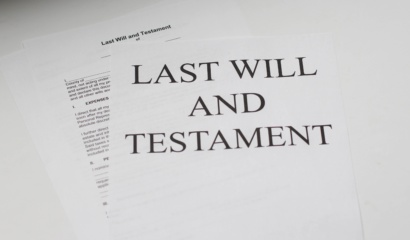Home / Business Legal Lifecycle / Selling Your Business
Selling Your Business
Advice On How To Sell A Business
Phase 11 – Sale of Whole or Part of the Business
Previously, I said that in acting for business owners, the Start Up phase is the most exciting. Acting on behalf of a business owner in the sale of their profitable business is a close second. This phase is also rewarding as it is all about having a business that you can sell either as a whole, in part, or even listing it on the Stock Exchange.
Selling your business is often the culmination of all of the effort you put into your business over the years. The positioning of this phase is really due to its inherent nature. In every business, the goal is to build the most successful business possible irrespective of whether it is a lifestyle business that brings in an income to fund an ideal lifestyle, or a company with a turnover of over $10 million a year with appropriate consideration given to the possible sale of the business in the future.
The Best Time To Sell a Business
Selling your business is at the top of the cycle as it represents the pinnacle of the business owner’s involvement in the business. The best time to sell a business is when it reaches its optimum profitability, turnover and staff capability. This does not mean that the business cannot become even more profitable, or that the buyer will then fail in the business. In fact, quite the opposite is often true; a good business that is at the top of its game can be sold to a buyer who then starts their own Business Legal Lifecycle and continues the success of the business.
A well-established business will already have a lot of the necessary processes and procedures in place, which will greatly assist the buyer (new business owner) to move forward. The new owner may have to revisit the earlier phases in the Business Legal Lifecycle to familiarise themselves with the details of certain phases and to ensure that they are comfortable with the way in which the processes and procedures were set up by the previous business owner and make adjustments where necessary.
Sometimes, a business may be sold in less than ideal circumstances; ill- health, litigation or lack of funding may force a business owner away from their business.
Of course, they do not have to sell their business as they may be prepared to sacrifice growth for a lifestyle business that will simply pay themselves a wage for the rest of their foreseeable lives.
The keyword here is ‘foreseeable’; as discussed earlier there are many things outside the business owner’s control that might force a business to be sold. In this phase of the Business Legal Lifecycle I will go through the key considerations that buyers have when looking at buying a business and what owners should have in place to maximise their selling price, irrespective of whether the sale is forced or by choice.
Important considerations when selling a business are:
- If I wanted to buy this business what would I want?
- What are the unique things that make my business stand out?
- Have I protected my intellectual property?
- Have I completed the other phases of the Business Legal Lifecycle successfully?
- Are the financial books and records of my business up-to-date?
- Have I been taking any cash out of the business that will affect the bottom line of my business?
- Which consultants do I need to engage with to help me to sell my business?
Dangerous considerations when selling a business are:
- My business is perfect; I do not need to do anything to get it sold
- I want $x for my business and what anyone else says does not matter
- I can negotiate on my own sale
- I do not need to bring my books and records up to date; they will be fine
- Everyone wants to buy my business
Stop Taking Cash for Fees When Selling A Business
At the start of this phase, I wanted to address a matter which is often overlooked; owners taking money out of the business for personal reasons and without recording the profits. They do this for a number of reasons, including to avoid paying tax on the money, to hide money from their spouse or family law proceedings, or perhaps to hide money from their business partner. The truth is that in any business, no person should be taking big risks for small gains; the tax man, your spouse or your business partner will inevitably find out that you have been hiding money from them and it will not end well. Not only could you end up with either a larger debt to the tax office (different countries around the world have different rules in relation to this but in some countries like Australia if you deliberately avoid paying certain taxes, that can attract significant penalties and interest), but you could have serious trust issues with your spouse or business partner.
However, the main reason you should not take cash from your business is that for every 30c (the current Australian company tax rate) that you avoid, it could end up costing you $1, $3, or $5 when you sell your business. This is because when a business is sold, the sale price is generally calculated as a multiple of the profit made by the business (usually averaged over the previous two or three-year period). Profits need to be demonstrable so the prospective buyer can verify the purchase price. Therefore, for every dollar that you take out of your business, you are short changing yourself by much more when you sell your business.
For example, if you take $100,000.00 in cash from your business and then sold it you could not rely on that $100,000.00 as it is not recorded in the company books. Consequently, the company’s value will be $300,000.00 less (based on a 3x multiple) than it should have been – quite a bit more than the $100,000.00 you took out initially. All of this is to save paying approximately $30,000.00 in company tax.
How to Sell a Business
In order to sell your business at your desired price, you need to ensure your business is a well oiled machine that can work without you. The purpose of this book is not to go through every single aspect of selling your business, but to identify some of the major areas that help drive the price up when you sell your business. The process of selling a business is quite a complex one; it involves a great deal of high level negotiations and a number of important steps, including:
Having your business ready for sale
If you are considering selling your business you should engage a business broker, a valuer, and/or a business valuer to assist in the sale. The right consultant will not only be able to help you through the process but also to ensure that you receive the best possible price for your business.
I have never seen a business with everything in place ready for sale at the time of asking. It generally takes about two years of discipline and hard work to get a business ready for sale. In many cases, a broker is not engaged to prepare a business for sale as the owner prefers to manage the sale personally. Despite the owner’s best efforts, they lack the specialist knowledge to extract maximum value from the sale, and often are unable to secure the sale as they cannot justify the asking price. In the end they are forced to accept a figure much lower than their asking price, abandon the sale, or go back to square one and hire a broker to get the job done properly.
From the Case Files
An example of this was a client who wanted to sell their service based business. The business was a financial planning business that had a great revenue stream and was making solid profits of over $1 million per annum. The business owner met with a number of brokers who all told him that he needed to do significant work on the business to sell for the price that he wanted (being a 4x multiple of their profits). Despite this advice, the business owner decided that he did not want to engage a broker and that he would market the business himself for sale. The business was not ready for sale and the client marketed the business on a general website and did not engage a broker. He was serious about selling but every time a potential buyer came to him the client could not justify the price he wanted for the business. After marketing the business for six months, the business owner finally realised that he needed to engage the services of a broker. The broker spent some more time ensuring that the business was ready for sale and then started marketing the business. The business was sold after one month of marketing for a price greater than the business owner had initially wanted for the business.
The price
Before you sell your business you will, of course, have an idea of what you think it is worth. Invariably, the actual value will be less once the price of the business is actually calculated.
Generally, the three main components that determine the price of a business are:
- (a) the goodwill including intellectual property of the business
- (b) any plant and equipment including digital assets of the business
- (c) any stock or inventory that the business owns
The goodwill of the business
Goodwill is the real value and profit of the business and includes intellectual property; it is the key figure used in calculating a business’ real worth. The goodwill of the business is generally worked out as a multiple of earnings before interest, tax, depreciation and amortisation (EBITDA), or some variant, over a one, two or three year period. What EBITDA calculates is the profit of the business before you add in any interest that you earn, take out any tax payments, or depreciate or amortise any assets.
The multiple is a figure that is attributed to how easily the business can be taken over and run without the current owner. The lower the multiple, the more reliant the business is on its owner; the higher the multiple, the more independent the business is from the owner, the better systems that the business has in place and the easier it is for a third party with no relatable experience to walk in and take over. Law and accounting firms, for example, generally have a low multiple as a large part of the goodwill is tied up in the personal relationships the practitioners have with their clients. Conversely a printing firm will have a much higher multiple as it is not so dependent on personal relationships. Having systems in place and intellectual property protected is a great way to increase the multiple, meaning you are not needed in the daily operations of the business as much and it therefore becomes a more valuable and marketable asset.
Plant and equipment
The plant and equipment of the business are, put simply, the physical assets that are used to operate the business. In an office, for example, these might include the fitout of the premises such as desks, chairs, filing cabinets, computers and telephones, while in a factory it might be the machinery and the ancillary items and equipment used to service the machinery. When a business is sold, the value of these items is calculated at the depreciated value of each asset (and rarely for its replacement value). Depreciated value is simply the loss in value of that asset over time.
Stock and inventory
Many businesses rely on stock and inventory to run the business; these are the products that are sold in the business or that are used to make products for the business to sell. When a business is sold, the source items that are used to make the product are generally sold at cost price. So, if the stock was bought at $1, it would be sold to the new buyer at $1 modified by the age and usefulness of the stock.
There are many considerations when looking at the price of a business; this is just a short summary of some of the factors you need to consider when selling your business. You should consult with a business broker, a valuer and/or a business valuer to ascertain the true value of your business and what price you will achieve in your market.
Marketing of the business for sale
Engaging a business broker to sell your business is the easiest way to market it to potential buyers. Generally, brokers will have a database of clients and customers that they can approach that may be interested in your business. They also have the ability and contacts to advertise your business in places where investors know to look when they are interested in buying a business.
The contract
A sale of business contract is a lot more complicated than a contract for the sale of land. It is important that the contract includes all things necessary to make the business continue to operate with the new owner, including:
- (a) the name and address of the business
- (b) the telephone, fax, website, email addresses of the business
- (c) any social media pages of the business
- (d) the price that is agreed upon between the parties
- (e) whether the contract is subject to any due diligence (that is, enquiries made in relation to the business to make sure that it is what the seller says it is), finance (to make sure that the buyer can buy the business) or any other inspections required by the buyer
- (f) the transfer of any government licences required to operate the business (e.g. liquor licence)
- (g) the transfer of the lease for the premises
- (h) restraint of trade provisions, preventing the seller from operating a competing business or taking existing clients from the business
- (i) any other aspect that is required for the business
If the vehicle that operates the business is set up correctly, then the tax position upon the sale of the business should be consistent with what was considered when the business was started (see section 2.1 on structures). You must obtain advice from your accountant and/or financial advisor as to your tax liability from the sale. There are often mechanisms that can be put into place to minimise the tax that you must pay upon the sale of your business.
You must also engage a lawyer to either draft or review any business sale contract that you are considering entering into. For instance, some states in Australia require businesses to give certain types of disclosures when they are sold or when leases are being transferred. Therefore, it is essential that you obtain advice from a qualified lawyer about the terms of the contract and that you tell your lawyer all aspects of the business to ensure that everything is covered in the sale. There is ‘no one size fits all’ model for the sale of a business, due to the fact that every business and the way that it is run is unique.
Settlement
Once the contract is signed and all of the conditions have been complied with, the contract is usually settled with the payment of the purchase price by the buyer to the seller and the transfer of the business to the buyer by the seller. At this point, all of the legal forms to do with the names, telephones, utilities, and so on of the business should be lodged with the respective government departments and suppliers to ensure that the transfer is completed.
This is only a short summary of the considerations to sell a business. As can be seen from this list, it is not a simple process. It is one that takes a considerable amount of work and energy. Throughout the process, it is essential that you engage with and keep abreast of all situations with your lawyer, accountant, financial planner, business mentor or coaches, as well as your business broker. All of these consultants are essential to ensure that the business owner achieves the best possible sale price for your business, as well as ensuring that the sale process proceeds smoothly and successfully.
Considerations about the Sale of Part of the Business
In section 6, I discussed bringing investors into the business. Part of that discussion revolved around the considerations of bringing in an investor and selling part of the business.
This section focuses on selling off a part of a business but not the entire business. The sale of the whole of the business and part of the business are dealt with separately as there are some significant differences between them.
When selling a part of any business, careful consideration needs to be given to how that portion of the business is sold. A contract needs to carefully define what part of the business is being sold as distinct from what is being kept; the contract needs to ensure that there is no room for misunderstanding between the parties as to their ownership rights. It is also critically important to define the restraint of provisions mentioned earlier. Given that the new business owner is only buying a portion of the business, the only part of the business that the seller can be restrained from continuing to trade in is that part of the business which is sold, otherwise, the restraint would not be seen as reasonable and would no doubt be struck out as such.
From the Case Files
A classic example of the sale of part of the business is a real estate agent’s rent roll. We acted for an agent that had a very large business with a turnover in excess of $5 million per annum and a rent roll of over 800 properties. The owner of the business was tired of dealing with the rent roll side of the business as they did not like dealing with the issues that came about from tenants. They decided that they wanted to sell that part of the business to another agent that was a competitor in their area. As with the majority of real estate agents in Queensland, Australia, they had two aspects of their business; the first is property sales and the second is property management. The management rights to those properties are valuable assets that can be purchased by a third party licensed real estate agent whilst the selling agent retains the sales aspect of their business. The agent was able to sell off that aspect of the business to the competitor real estate agent whilst maintaining their business as a sales agent.
So for a real estate agency that both sells and leases properties, the seller would be restrained in operating either a rent roll or sales department, depending on which part of the business is sold, but could not be restrained for both (where only a part is sold).
The considerations in selling part of a business are very much dependent on the type of business that is being sold. There will also be different tax consequences when only part of the business is being sold as different rules apply, so it is important that you engage with your advisers early and work through all the issues.
Summary of Selling a Business
This phase is one of the most exciting in the Business Legal Lifecycle as it is here you will see the reward for all of the hard work and patience. Where a business owner follows the Business Legal Lifecycle in full, they will find that their business is properly set up (or close to it) to successfully navigate this selling their business. Properly handled, selling your business will see you reap the benefits of your business. It should occur when the company is at the top of its game, so it achieves the best possible return to you.
Taking the right advice from your consultants will ensure that you can properly navigate selling your business and achieve the best return. If you do not take this step, or worse yet this step fails, then you will need to move on to the Retirement phase or, worse yet, the Insolvency/Winding up phase of the Business Legal Lifecycle.
Dealing with selling your business in a careful and methodical way is also important. Rushing through the sale of your business will result in you losing some of the value of the business. You may not be ready to move onto the next phase of Retirement (and may start a new business and Lifecycle all over again) but taking a calm and methodical approach will mean that you have the choice to retire and reap the rewards of all of your hard work and patience or decide upon another course.
More Information On Selling Your Business
Questions to ask before you progress to the next phase of starting your business:
Have you put everything in place to be able to sell either the whole or part of your business?
Have you engaged a suitable broker to help you sell your business?
If you want to list on the Stock Exchange have you engaged the appropriate consultants to assist you in the process?
Have you sold your business for the price that you want?
Interested In Discovering Your Legal Risks?
FAQs
Have an Enquiry?






